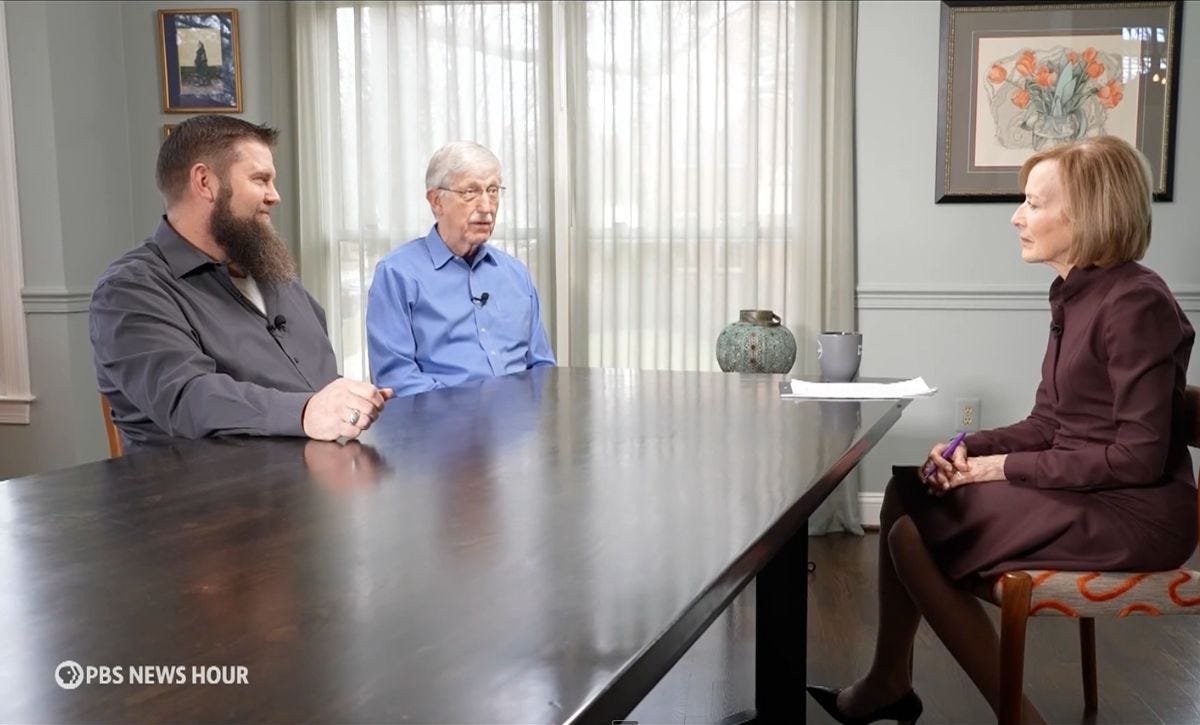Higher Ed Needs Checks and Balances
For The Chronicle of Higher Education, Prohuman Foundation advisor Jake Mackey—and co-authors Lawrence M. Eppard, Michael Jindra, and Fabio Rojas—critique political one-sidedness in academia, and propose a system of checks and balances to foster viewpoint diversity in hiring. They argue that this approach can counter groupthink, enrich scholarship, and rebuild trust in universities as primarily truth-seeking institutions.
Many Americans suspect, for good reason, that colleges and universities are not dispassionately pursuing the truth, wherever it leads, but are instead promoting partisan agendas. There is evidence that top public-policy programs have almost no conservative faculty, which makes one wonder what kind of debates are actually had there.
If we do not remedy this situation ourselves, the Trump administration, not to mention state governments, are likely to do it for us, in ways that may hamstring institutions of higher education and stymie the production of new knowledge.
California DOE finds school’s ethnic studies curriculum discriminated against Jewish students
Grace Gilson, in The Jerusalem Post, reports that the California Department of Education ruled a San Jose high school’s ethnic studies curriculum discriminated against Jewish students by presenting biased content on the Israeli-Palestinian conflict. The decision underscores the need for balanced perspectives in education to ensure fairness and mutual understanding in diverse classrooms.
The ruling is the latest development in the years-long fight over ethnic studies in California. The state requires that high schools teach the subject — an effort to reflect the experiences of minority communities — but a model curriculum draft in 2019 drew widespread outcry from Jewish groups.
Critics said the draft included antisemitic and anti-Israel statements, and that it neglected to include the Jewish experience. Subsequent drafts also splintered the Jewish community. Some praised the revisions for including material on local Jewish communities, while others criticized them for promoting a “narrow political ideology.”
Wilk Wilkinson and Francis Collins Seek Post-Pandemic Understanding
Prohuman Foundation advisor Wilk Wilkinson brought his perspective to PBS NewsHour, joined by beleaguered former NIH Director Dr. Francis Collins, reflecting on their Braver Angels dialogue about healing post-pandemic rifts.
WILKINSON: We need to get out amongst the communities again. We need to talk to our neighbors. We need to engage our family members in uncomfortable conversations, but understand that you can approach a contentious topic in a non-contentious way.
Pluralism, Particularity, and Possibility
John Inazu, in his Some Assembly Required Substack, reflects on his inaugural Pluralism Lecture at Duke University, drawing on deeply personal interfaith experiences to argue that particularity, purpose, and perseverance can sustain confident pluralism. His thoughtful blend of influences—from Maya Angelou to the U.S. Air Force—shows how empathy and forgiveness can help us live generously with differences in a divided world.
If I’m honest, my nineteen-year-old self may have had a little too much particularity. I was sure that my beliefs were correct, and by extension, I was sure that many of those around me were wrong. Confidence in one’s faith is not itself a bad thing. But at the time, I lacked the resources to share my own firmly held commitments while also inviting others to share theirs.
Daryl Davis Shares His Story and Tips for Educators
Prohuman Foundation co-founder Daryl Davis discussed his new book The Klan Whisperer with Ken Futernick for the Courageous Conversations About Our Schools podcast. They cover Daryl's journey as a Black musician engaging Klansmen in dialogue. Daryl also shares his practical tips for educators seeking to cultivate understanding across differences.
DAVIS: The greatest weapon known to man to dismantle conflict is the least expensive. It's free. It's called conversation.
The Third Space: Reclaiming Our Courageous Center
Peter Himmelman, in his Morning Musings Substack, champions a ‘Third Space’ mindset that embraces complexity, tension, and dialogue. Drawing from his eye-opening experience at the U.S. Army War College, he urges readers to welcome intellectual discomfort.
I think the term “centrist” needs a rebranding. I suggest: The Third Space. It refers to the space—and more importantly, the mindset—that can be found between the two increasingly warring polarities of left and right. When lived with integrity, the Third Space becomes an aspirational goal. And anyone who has tried to grasp it knows firsthand: it’s not tepid. It is a furnace. A place of heat and tension. It’s where people go to wrestle—not so much with others, as with themselves: their own preconceptions, prejudices, and inhumanity.
Erec Smith joins C-SPAN Washington Journal
Prohuman Foundation advisor Erec Smith, a Cato Institute research fellow, critiques the “anti-racist” approach to racial reconciliation on C-SPAN’s Washington Journal program, discussing the Trump administration’s efforts with respect to DEI.
I like the idea of revamping the department of education. And I think the states should have more say in what’s going on. . . . I like the prohibition of DEI to an extent. It may go a little too far, as we talked about earlier, but we need to get the critical social justice out of higher ed pedagogy and secondary pedagogy. . . .
[My parents] struggled a lot to give us the lives we had and the opportunities we had. For me to say, "oh, forget about those opportunities, I'm going to pretend that things are so awful that I can't possibly succeed" is an insult to my parents. I would never do that. You know what I'm going to do to honor my parents? I'm going to succeed. I'm going to succeed mightily, and I'm not going to be stopped.
Prohuman Book Club:
The Prohuman Book Club will meet on Thursday, Apr. 24 with author Seth Kaplan to discuss his book “Fragile Neighborhoods.” Join us—bring your questions and engage Seth directly.
Opinions expressed in selected articles do not necessarily reflect those of the Prohuman Foundation. We value diverse perspectives that enrich our understanding of topics close to our mission: to promote the foundational truth that we are all unique individuals, united by our shared humanity.










